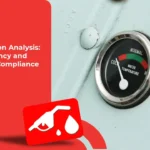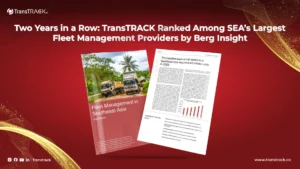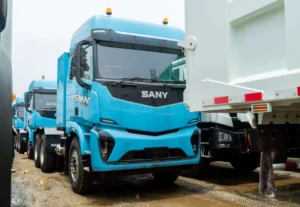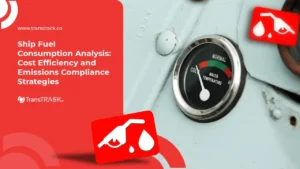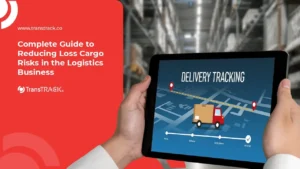Find out the Types, Benefits, and Advantages of Warehouse Franco Delivery!
Posted on December 28, 2023 by Nur Wachda Mihmidati

The term “Warehouse Franco Delivery” refers to an international trade term that involves the franco (free) or delivery of goods at no additional cost to a particular warehouse or storage place. Generally, the term is used in the context of freight forwarding or trade where the seller is responsible for the delivery of goods to a specific warehouse or storage place in the destination country at no additional cost to the buyer.
In other words, when an item is shipped “Warehouse Franco Delivery,” the cost of shipping and handling from the point of origin to the warehouse in the destination country is included in the price paid by the buyer. This means that the seller has to take care of and pay for shipping costs, import duties, and other expenses until the goods reach the agreed warehouse or storage place.
However, keep in mind that this term may have variations in meaning depending on the context and the agreement between the parties involved in the trade transaction. If you are referring to a specific context or have additional information, it would be helpful to provide a more specific explanation. Check out the full explanation through the following article TransTRACK!
Types of Warehouse Franco
The term “Warehouse Franco” can be divided into two main types, namely “Seller Warehouse Franco” and “Buyer Warehouse Franco.” Here is a brief explanation for both types:
Franco Seller’s Warehouse
- In this type, the seller is responsible for shipping the goods to a specific warehouse or storage area in the destination country.
- Shipping costs, import duties, and other costs from the point of origin to the warehouse or storage area are the responsibility of the seller.
- The buyer only pays the price of the item and does not have to worry about additional shipping and handling costs.
Franco Buyer’s Warehouse
- In this type, the seller remains responsible for the delivery of the goods, but up to the warehouse or storage area owned by the buyer.
- Shipping and handling costs are taken over by the seller until the goods reach the buyer’s warehouse.
- The buyer then takes responsibility for storage fees, import duties, and other costs once the goods reach a warehouse or storage place owned by them.
It is important to note that the specific terms of the term “Warehouse Franco Delivery” may vary depending on the agreement between the seller and buyer. Therefore, it is always important to detail the terms of delivery and payment in the contract or trade agreement to avoid any confusion or conflicts later on.
Benefits of Warehouse Franco for Business
The use of the term “Warehouse Franco” in the context of international business can provide several benefits to companies. Here are some of the main benefits of the Franco Warehouse Delivery concept:
Cost Efficiency
Franco Warehouse can help companies optimize the cost of shipping and handling goods because the seller or buyer (as agreed) is responsible for the logistics costs until the goods reach the warehouse or designated storage area.
Centralized Storage
By using Franco Warehouse, companies can consolidate their inventory in a specific warehouse or storage area. This can help in stock management and logistics management more efficiently.
Reduced Lead Time
By choosing a strategic warehouse or storage area, the lead time or time required to deliver goods to their destination can be reduced. This can increase the speed of response to customer demand.
Market Expansion Support
The Franco Warehouse concept can provide the flexibility and logistical support required for market expansion. Companies can more easily reach customers in different regions or countries without excessive logistics burden.
Speed Up Delivery Time
By moving the logistics responsibility to the seller or buyer down to the warehouse or storage area, delivery times can be expedited. This is important to meet customer expectations regarding prompt delivery.
Improves Relationship with Business Partners
A clear and efficient Franco Warehouse deal can improve the relationship between sellers and buyers. Both parties can feel more trusting and satisfied with efficient and transparent trade transactions.
It is important to note that these benefits may vary depending on the industry, product characteristics, and specific business needs. Therefore, companies should consider the logistics policy that best suits their business goals and strategies.
Terms in Goods Handover Other than Franco
The terms you mentioned relate to terms of delivery and payment in the context of international trade. Here is a brief explanation of these terms:
Loco (Location)
“Loco” or “Location” refers to a term that indicates that the seller’s responsibility ends once the goods reach a certain location, but does not include the cost of shipping into a warehouse or storage area.
Free On Board (FOB)
“Free On Board” or “FOB” indicates that the seller is responsible for delivering the goods to the designated port or place of loading. Shipping costs and the risk of loss or damage to the goods pass from the seller to the buyer when the goods are loaded onto the vessel.
Cost and Freight (CFR)
“Cost and Freight” or “CFR” indicates that the seller is responsible for shipping and insurance costs until the goods reach the port of destination. However, the risk of loss or damage to the goods passes to the buyer once the goods are loaded onto the vessel.
Cost, Insurance and Freight (CIF)
“Cost, Insurance and Freight” or “CIF” is similar to CFR, but the seller must also provide insurance to protect the goods during shipment. The risk of loss or damage to the goods passes to the buyer once the goods are loaded onto the vessel.
Each of these terms provides a framework for determining when and where risks and costs pass from seller to buyer during the international shipping process. This is important in determining the responsibilities of each party and can affect the calculation of the total cost of an international trade transaction. Before entering into a transaction, it is important to clearly agree on the shipping terms that will be used in the trade agreement.
Advantages of Warehouse Franco System
The Franco Warehouse system, which involves delivering goods to a specific warehouse or storage area at no extra cost to the buyer, can provide a number of advantages for businesses. Here are some of the advantages of the Warehouse Franco system:
Cost Efficiency
Reduce the burden of logistics costs because the seller or buyer (as agreed) is responsible for the shipping costs to the designated warehouse or storage area.
More Efficient Stock Management
By consolidating inventory in a centralized warehouse or storage area, companies can manage stock more efficiently and reduce storage costs in different locations.
Lead Time Reduction
Choosing a strategic warehouse or storage area can help reduce lead time or the time it takes to deliver goods to their destination. This can improve quick response to customer demand.
Market Expansion Support
Assist companies in reaching a wider market by providing an efficient logistics structure to manage shipments to different regions or countries.
Flexibility in Warehouse or Storage Location
Offers flexibility in choosing a warehouse or storage location that best suits business needs, including the possibility of selecting a location that can optimize costs and delivery times.
Increased Delivery Speed
Franco Warehouse delivery can help improve delivery speed as certain logistical responsibilities are taken over by the seller down to the warehouse or storage area.
Increases Customer Trust
Clarity on logistics costs and responsibilities in transactions can increase customer trust in the company.
Optimizing Supply Chains
Franco Gudang can help optimize supply chains by streamlining logistics processes and reducing costs associated with shipping and storing goods.
However, while Franco Gudang has these advantages, it is important to note that its successful implementation may depend on the specific business context, the type of products being sold, and the relationship with business partners. It is always important to clearly detail requirements in trade agreements to avoid potential conflicts or uncertainties later on.
In the world of international trade, logistics and supply chain management are key to business success. One approach that has proven effective is through structured delivery systems, such as the Franco Warehouse concept. By implementing Warehouse Franco delivery, companies can experience a number of benefits, including cost efficiency, better stock management, and increased delivery speed.
However, to optimize warehouse management and maximize the potential of Warehouse Franco, companies need a more sophisticated and integrated solution. This is where TransTRACK’s Warehouse Management System (WMS) becomes crucial. TransTRACK provides a comprehensive and up-to-date solution to facilitate warehouse management, including stock monitoring, shipment tracking, and real-time inventory management.
With TransTRACK, companies can face logistics challenges with confidence. Data accuracy, operational efficiency, and timeliness are the main focus, providing the competitive edge needed in a competitive global market.
Don’t let business potential be held back by logistical constraints. Utilize the Franco Warehouse advantage and strengthen your operations with TransTRACK’s Warehouse Management System. For more information and consultation, visit TransTRACK’s website today and discover how their solutions can take your business to the next level.
Optimize your supply chain, increase efficiency, and prepare to succeed on the international trade stage with TransTRACK as your trusted partner.
Recent Post
Topic :
 Bahasa Indonesia
Bahasa Indonesia





